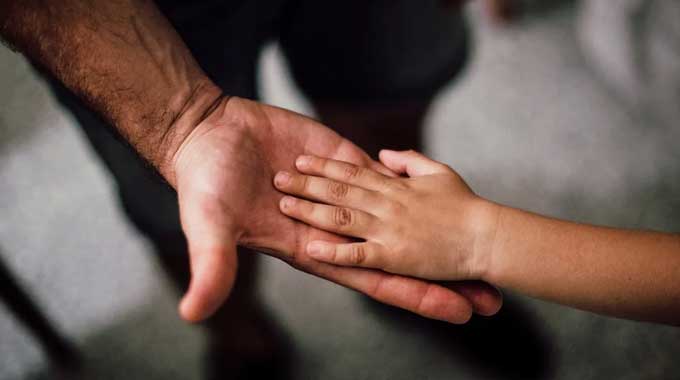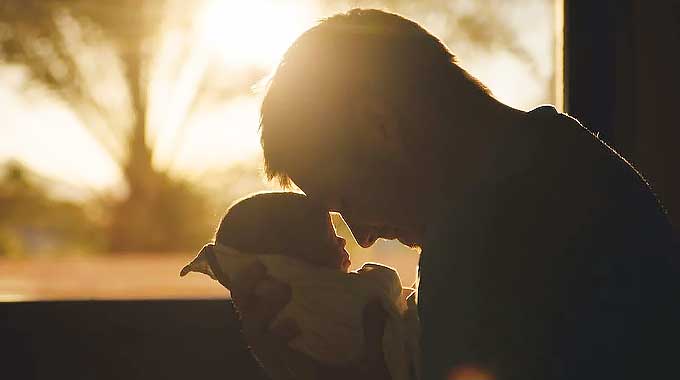Es frecuente que una madre reciente sufra cambios de humor abrumadores durante varios días poco después de tener un bebé. Muchas experimentan estos intensos síntomas de inmediato. Los cambios hormonales tras el parto son muy intensos, y la “melancolía posparto” afecta a la mayoría de las madres.
- Que Es La Depresion Posparto
- Causas Y Factores De Riesgo De La Depresion Posparto
- Posibles Causas
- Factores De Riesgo
- Signos De Depresion Posparto
- Cambios En Los Sentimientos
- Cambios En Su Vida Cotidiana
- Problemas En La Relacion Con Su Bebe
- Que Es La Psicosis Posparto
- Sintomas De La Psicosis Posparto
- Complicaciones De Los Sintomas De La Depresion Posparto No Tratados
- Cuando Acudir A Un Especialista En Salud Mental
- Pongase En Contacto Con Nosotros
Sólo empieza a ser preocupante cuando estos sentimientos negativos abrumadores y el estado de ánimo depresivo se vuelven persistentes. Es entonces cuando tenemos que considerar que la nueva madre puede estar mostrando síntomas de depresión posparto.
Esta entrada del blog explora qué es la depresión posparto, sus causas y los signos y síntomas a los que puede estar atenta. Si cree que puede tener síntomas de depresión posparto, debe ponerse en contacto con su profesional sanitario. Hay tratamiento disponible con profesionales con experiencia en depresión posparto.
¿Qué es la depresión posparto?
La depresión posparto (también conocida como PPD) es un trastorno mental similar a la depresión mayor. Puede aparecer días después del parto o meses más tarde. Implica fuertes sentimientos de tristeza, inutilidad, soledad, ansiedad y fatiga que pueden dificultarte mucho el cuidado de tu bebé y de ti misma.
La depresión posparto puede confundirse a menudo con la melancolía posparto. Las investigaciones demuestran que hasta el 80% de las madres que acaban de dar a luz sufren depresión posparto, también conocida como síndrome depresivo posparto transitorio.
La melancolía posparto puede presentarse entre dos y 35 días después del parto y suele durar hasta dos semanas. Los síntomas habituales son mal humor, trastornos del sueño (incluso cuando el bebé está descansando), problemas de apetito, sensación de agobio, baja concentración y llanto frecuente. Si estas sensaciones duran mucho más de dos semanas, se recomienda a las madres que pidan ayuda a su médico.
Los sentimientos de depresión posparto duran bastante tiempo después del parto. Cuando tienes depresión, es fácil caer en la trampa de creer que los sentimientos son culpa tuya. Pero no es así. Por desgracia, la depresión posparto es un problema común entre las madres primerizas. Afecta a entre el 6,5% y el 20% de las madres primerizas.
Es una buena idea conocer los síntomas de la depresión posparto y entender en qué se diferencia de la melancolía posparto. Cuanto antes pueda reconocer que puede padecer depresión posparto, antes podrá buscar tratamiento que le ayude a recuperarse.

Causas y factores de riesgo de la depresión posparto
Posibles causas
La depresión posparto no tiene una causa única, sino que puede deberse a una combinación de antecedentes familiares, cambios fisiológicos y problemas psicológicos. Si padece otra enfermedad, como trastorno bipolar, también puede correr el riesgo de padecer depresión posparto.
- La genética: Las investigaciones han demostrado que ciertos genes contribuyen al riesgo de que una nueva mamá desarrolle depresión posparto. Cuando pienses en tu vulnerabilidad a la depresión posparto, puede resultarte útil preguntarte si otros miembros de tu familia también la han padecido.
- Cambios fisiológicos: Tras el parto, suele producirse un descenso drástico de los niveles hormonales (estrógenos y progesterona), lo que puede provocar depresión posparto. Incluso los niveles de la hormona tiroidea pueden descender, contribuyendo a la sensación de fatiga y depresión.
- Problemas emocionales y psicológicos: El embarazo va acompañado de muchos problemas emocionales, como la sensación de pérdida de identidad o la falta de control. Tras el parto, pueden surgir más problemas, como la falta de sueño y la sensación de agobio. Todos estos sentimientos te afectan psicológicamente y pueden inclinarte a sufrir depresión posparto.
Factores de riesgo
Cualquier persona que dé a luz, sea o no su primera vez, puede desarrollar una depresión posparto. Sin embargo, existe un mayor riesgo en las siguientes circunstancias.
- Le han diagnosticado trastorno bipolar
- Tiene antecedentes de depresión
- Ha sufrido depresión posparto tras un embarazo anterior.
- Suele padecer síndrome premenstrual (PMS) grave.
- Tiene familiares que han sufrido depresión u otros trastornos del estado de ánimo.
- Ha experimentado recientemente un acontecimiento importante y estresante en su vida, como la pérdida de un ser querido, una carga económica, complicaciones en el embarazo o la pérdida del trabajo.
- Tiene gemelos, trillizos o más.
- Tiene problemas con la lactancia
- Su bebé tiene problemas de salud o de desarrollo
- Ha sido un parto prematuro
- Tienes problemas de relación con tu pareja
- No tienes un sistema de apoyo estable (especialmente si eres madre primeriza) o careces de apoyo emocional
- El embarazo fue no deseado, no planificado o el resultado de una experiencia traumática

Signos de depresión posparto
Los síntomas de la PPD suelen aparecer en el primer mes, justo después del parto, pero es posible que comiencen durante el embarazo, como depresión perinatal, o incluso un año después. Si sospechas que puedes tener síntomas de depresión posparto, estos son los signos a los que debes prestar atención.
Cambios en los sentimientos
- Sentimientos de tristeza extrema la mayor parte del día, a diario
- Sentimientos persistentes de inutilidad, culpa o vergüenza
- Llantos frecuentes
- Sensación de ansiedad y a menudo de pánico sin razón directa
- Cambios bruscos de humor
- Irritabilidad irracional
Cambios en su vida cotidiana
- Falta de interés por las cosas que normalmente le gustan.
- Alejamiento físico y emocional de amigos y familiares.
- Cansancio constante, incluso al dormir
- Falta de energía o motivación para la vida
- Cambio en los hábitos alimentarios, comiendo más o menos de lo normal.
- Aumento o pérdida de peso drástica y visible
- Dolores de cabeza frecuentes o problemas estomacales que no desaparecen
- Problemas para dormir o dormir demasiado
- Falta de concentración
- Problemas de memoria
- Sentimientos de indecisión frustrante
Problemas en la relación con su bebé
- Tiene problemas para establecer un vínculo afectivo con su bebé
- Mostrar poco interés por el bebé
- Piensa en hacerse daño a sí misma o a su bebé
Una persona con depresión posparto puede incluso tener pensamientos suicidas.
No todas las personas con depresión posparto presentan todos y cada uno de los signos y síntomas. Esto se debe a que la depresión posparto varía de moderada a grave. Sin embargo, si experimentas alguno de estos síntomas después de dar a luz, habla con tu médico o enfermera matrona para encontrar ayuda. No dejes que la depresión posparto afecte a tu vida más tiempo del necesario.

¿Qué es la psicosis posparto?
La psicosis posparto es poco frecuente y no debe confundirse con la depresión posparto. Si alguien muestra síntomas, hay que buscar ayuda médica inmediatamente.
La psicosis posparto se da en 1 ó 2 de cada 1.000 madres primerizas. Puede afectar a cualquiera que haya dado a luz recientemente. Aunque suele producirse varios días después del parto, puede aparecer hasta seis semanas después. Se considera una urgencia médica porque sus síntomas pueden poner en peligro su vida o la de su hijo o hijos.
Síntomas de la psicosis posparto
- Alucinaciones (ver u oír cosas que no existen).
- Cambios bruscos y rápidos del estado de ánimo (por ejemplo, llanto histérico, seguido de risa frecuente y luego sentirse deprimido en el espacio de media hora o menos).
- Estado de confusión constante.
- Inquietud y agitación infundadas
- Dificultad para dormir
- Paranoia abrumadora en la que cree que otros intentan hacerle daño.
- Comportamiento inusualmente imprudente
- Intentar hacerte daño a ti misma o a tu bebé (las madres primerizas deben tener siempre visible en casa el número de teléfono de la línea nacional de prevención del suicidio).
Si tú o alguien que conoces tenéis pensamientos de haceros daño, llama al 988 o entra en 988lifeline.org para chatear con alguien en la línea de suicidio y crisis. Para contactar con la Línea Nacional de Salud Mental Materna llame al 1-833-943-5746 (1-833-9-help4moms)
Complicaciones de los síntomas de la depresión posparto no tratados
Si no se trata, la depresión posparto puede durar varios meses o incluso mucho más, lo que también puede repercutir en el bebé.
Complicaciones para las madres: Si la depresión posparto no se trata durante demasiado tiempo, los signos y síntomas pueden prolongarse hasta el punto de convertirse en un trastorno depresivo persistente.
Complicaciones para los bebés: La depresión posparto afecta a la relación de la madre con el bebé. Con el tiempo, el bebé puede experimentar dificultades para comer, dormir y comportarse.
Complicaciones para el otro progenitor: A menudo, puede haber un efecto dominó con la depresión posparto donde cualquier otra persona que esté cerca del nuevo bebé puede verse afectada. Suele tratarse de la pareja o el cónyuge, si lo hay. Los investigadores han descubierto que la Escala de Depresión Postnatal de Edimburgo, utilizada para diagnosticar la PPD en las madres primerizas, también puede utilizarse en los padres. https://perinatology.com/calculators/Edinburgh%20Depression%20Scale.htm
Cuándo acudir a un especialista en salud mental
Las madres que sufren depresión posparto a menudo creen que no deben contar a nadie sus síntomas. Pueden sentirse avergonzadas y culpables de tener sentimientos tan negativos en un momento en que los mensajes sociales les dicen que deberían sentirse realizadas. Esta es una de las barreras más desafortunadas para acudir a un profesional sanitario y recibir un diagnóstico de depresión posparto.
Llegados a este punto, cabe destacar que si sientes los síntomas de la depresión posparto, no significa que seas una mala madre y no tienes por qué seguir sufriendo. Los proveedores de servicios médicos y de salud mental siempre están disponibles para ayudarte a averiguar si tus síntomas son consecuencia de la depresión o de otra cosa.
Si experimentas constantemente alguno o muchos de los siguientes signos, deberías plantearte acudir a un profesional de la salud mental.
- La tristeza y la culpa consumen tus pensamientos casi a diario.
- La tristeza posparto no mejora después de dos semanas.
- Pierdes interés por las cosas sencillas que te gustan.
- Estás constantemente frustrada e indecisa.
- Tus patrones de sueño son muy preocupantes.
- Has experimentado cambios importantes y estresantes en tu vida (además de tener un bebé).
- Tienes una profunda preocupación constante por no ser una buena madre o te sientes desconectada de tu bebé, como si no fuera tuyo.
- Piensas en hacerte daño a ti misma o a tu bebé.
Es fácil sentirse desesperada tanto por ti como por tu bebé, pero la depresión posparto puede tratarse en cuanto te diagnostique un médico de confianza.
Si sus síntomas han alcanzado un nivel grave, las opciones de tratamiento pueden incluir una combinación controlada de medicamentos antidepresivos, terapia de conversación y grupos de apoyo. Por supuesto, el mejor tratamiento siempre se adaptará a ti y a tus necesidades específicas.
A la hora de recibir tratamiento para la depresión posparto, puede ser beneficioso unirse a un grupo de apoyo de madres primerizas que también experimentan depresión posparto, como cualquiera de las opciones que ofrece Postpartum Support International https://www.postpartum.net/en-espanol/. Ayuda a sentirse menos sola y a conocer mejor cómo se sienten otras madres.
Póngase en contacto con nosotros
If you are feeling depressed and concerned that your symptoms are not the baby blues, please get in touch. We can help you with postpartum depression and treat depression that stems from other causes.
Tenemos mucha experiencia en la atención de enfermedades mentales y podemos ofrecerle una evaluación para asegurarnos de que reciba un apoyo individualizado.
Las instalaciones de GIA Miami se encuentran en Miami. Nuestro centro es un espacio tranquilo y lleno de luz donde puede comenzar su recuperación con un tratamiento adaptado a sus necesidades específicas.
El personal de GIA Miami prioriza la discreción y la empatía. Usted puede entrar libremente sin temor a ser juzgado. Tan pronto como llegue, se sentirá bienvenido y tendrá la esperanza de que puede lograr la recuperación que se merece.
En GIA Miami, también queremos reconocer que todas las personas que necesitan ayuda para su salud mental, enfermedad después de dar a luz, o de otro tipo, son bienvenidas. No importa su edad, raza, discapacidad o posición política. Creemos que si alguien necesita atención, debe recibirla.
Si usted está listo para comenzar su viaje con nosotros para descubrir cómo se puede superar y tratar la depresión posparto por el bien de usted y su familia, entonces por favor no dude en contactar con nosotros para una consulta gratuita.







